Adrien Rabiot didn’t take the detour. While Europe spun its carousel—Premier League sirens, Serie A déjà vu, Gulf paydays—the France international looked at what was being built under Roberto De Zerbi and chose the hard road that makes sense in Marseille: responsibility, noise, and the Champions League. Is it romance, calculation, or both? Rabiot talks about loyalty to a project, a city that claims you the second you wear the shirt, and the simple idea that winning with limits is worth more than collecting medals with none. The message is plain: he’s here for the big nights, the emotion, and the weight that comes with them.
Deeply attached to Marseille, where he arrived nearly a year ago, the 30-year-old France international explains why he decided to extend his adventure through 2025–26. The former Parisian, embraced by the Phocean city, sounds particularly determined and believes OM have the means to deliver a big season.
His words are rare in the media. A symbolic pillar of OM—who face Aston Villa in a friendly at 7 p.m. at the Vélodrome—respected across the club and appreciated by supporters, Adrien Rabiot explain why he’s staying one more season in Marseille. Determined to play a leading role and motivated by the chance to play the Champions League in white, he spoke at length. Interview.
Interview
How are you feeling a few days before the league resumes?
Physically, we’ve had a good pre-season. We worked well and we’re still at it. I feel great mentally. I managed to switch off and enjoy my holidays. I came back with a lot of enthusiasm and I’m happy to start a new season which, I hope, will be very exciting.
You look completely at home in Marseille. What do you like so much about OM?
It’s the atmosphere in the city and all around the club. Whether I’m out and about or at the stadium, everyone I meet is steeped in Olympique de Marseille. For a football obsessive like me, that feels good. People are invested and expect a lot from us. I like that pressure—I’ve lived in it since I was very young.
Had you ever felt this kind of attachment to a club before?
It’s different. Things went very well at Juve, too, but it was another degree—people were maybe a little more distant. Here you feel that fervor and warmth from everyone.
Do you feel Marseillais today?
Of course! When I’m somewhere, I commit fully. I arrived last summer with the best intentions. I think I had a very good season and brought everything I could, especially my experience. I’ve tried to give pleasure to the people who come to see us at the stadium and support us away. From day one I’ve been Marseillais in my head.
Why choose to stay for 2025–26 when many observers thought you’d only be here a year?
When I arrived in Marseille there was no Champions League—that was a real objective. We achieved it. We built a group and had a very good season. I couldn’t see myself leaving just when the best part is about to start. We’ve put something in place with the coach, the staff, and everyone working at the club. I wanted to be part of what comes next.
Before your holidays you said on Canal+ you didn’t want to get ahead of yourself and that you needed to speak with Pablo Longoria and Medhi Benatia to take stock. How did that go?
I know football—it’s been thirteen years as a pro. Anything can happen. Sometimes you want to do something and then it plays out differently. So I didn’t want to speak too soon and end up disappointing supporters or people at the club. The discussions went very well. With Pablo, Medhi and everyone around, we were unanimous: the best thing was to stay. And that was a real decision on my part.
So you shut your ears and ignored everything else?
Yes. I really focused on OM. Clubs came in, but I’d given my word to the president and to Medhi, and we stuck to that.
Did big clubs come for you?
There were clubs with attractive offers, but that’s not what drives me. Here there’s a real project, a great season to go after, and something to build. I want to feel emotions, enjoy myself and give enjoyment to our supporters. That’s what motivates me.
Don’t you sometimes feel you’re going against the current of modern football? Players even leave for Saudi Arabia at 19…
For sure. When I see 19-year-olds signing there, for me it’s unthinkable. It’s not something I would have done at that age—but everyone has their own path. Maybe we’re not driven by the same things. I want to play the biggest European competitions, to feel stadiums shake—like the Vélodrome—and to experience those grounds we’ll visit this season in the Champions League.
When I arrived at OM, it was a beautiful challenge with a lot to rebuild. Qualifying for the Champions League wasn’t a given. Seeing what we’ve managed and what’s been improved at the club commands respect. It’s easy to build with eye-watering budgets; that’s not the case in Marseille, where people work very well with the means they have. Achieving something big with OM’s resources and competing with rivals who have two or three times our budget—that’s the kind of challenge I like.
As a former Parisian, did you expect to be so well accepted by OM supporters?
Before arriving I had a little apprehension, even after five seasons at Juve. I’m Parisian by birth—I grew up and was developed there. Knowing the rivalry of previous years, of course I asked myself a few questions, but it didn’t bother me. My desire to come and do well took over. Very quickly I saw that everyone was happy I’d come. In Marseille people put football before everything else—that’s what speaks to them. They were happy to welcome a player before thinking, “He used to be Paris.”
What role do the supporters play when you’re on the pitch?
They’re hugely important. We talk about it often—even in the club’s documentary “Sans jamais rien lâcher,” you can see how much the coach highlights it. The away fans spend hours on buses and in cars to come support us. They’re truly attached to OM, which I love. They’re behind us and push us every day. It’s not always easy for them, so we have to give everything for that public. That’s what we try to do.
Have there been moments with them that really stuck with you?
Plenty—especially at the Vélodrome. But also away. When we played at Lens, they were there, and all you could hear the whole match was our fans even though we were at Bollaert. These are people who have the same passion as us. We need to be aware of how lucky we are to play for a club with such fervor.
Even if sometimes it goes too far…
Passion brings that, too. But I’d rather be at a club where sometimes there are excesses than at a club where nothing happens, where there are no emotions, where it’s bland.
Where do you rank the Vélodrome compared with the stadiums you’ve known?
Honestly, very high! As I said, I experienced great things at Juve, but this stadium is truly special. We feel pushed. I had huge emotions—especially when I scored against Lyon. I had real shivers: it was an incredible moment for me, my first goal at the Vélodrome as well. There are very few places where you can feel that; Marseille is one of them.
On the flip side, there was your return to the Parc des Princes for PSG-OM. A few months on, do you think back to the abusive messages aimed at your mother, your late father, your family and you?
Not really, because it’s not something I want to revisit. But, as I said at the time, we need to restate that those things should be banned from stadiums. We play a beautiful sport. People come with their families and children to watch a spectacle and support the team they love. Families shouldn’t be insulted—that goes beyond football. That’s not what we want to see. As I said then, measures should be taken because it does harm.
Does it affect you, or are you hardened to it now?
As a footballer, I’m hardened. I’ve been a pro for a while and I’ve seen things… But when it involves family, it hurts to see our loved ones affected. We can’t control other people’s emotions, and they shouldn’t have to suffer. We’re the ones on the pitch. You can dislike a player or a team, but to insult like that—I find it small.
Your mother, Véronique, plays a major role in your career. What does she represent to you?
She’s essential. She’s the one who took care of me. My father fell ill when I was very young (he has since passed away). She always supported me. She put her life and her own career aside so she could accompany me, because very early people told her there was something to do in football and that I was passionate. She understood it and gave everything. We grew up together; she helped me at every step. So it was natural that she became the person who manages my interests. She’s always done it well. Over time, she’s learned a lot, it’s always gone very smoothly, she listens to what I say—we make a good team.
How do you handle criticism from observers or agents who target her?
It proves she has a real place, and that can annoy or disturb some people. But what she does, she does well. She’s likely inspired other people—and other women—in football. I’m very proud to be represented by my mother and, more broadly, to have my family around me like this.
Your two brothers also count day to day.
They’ve always been with me. When I was younger and left for England (Manchester, in 2008), they came with me, my mother too. We’ve always been close. That matters to me—I’m very family-oriented—and it helped me keep my feet on the ground. I have a brother much older than me (40) who was there to handle a bit of what my father couldn’t. We’ve always been very close; they’ve mattered a lot and still do. We see each other very regularly; they’ve helped me feel good in my own skin.
Unfortunately for Roberto De Zerbi, they aren’t footballers…
(laughs) He actually met my older brother, and he keeps joking about him. He tells me all the time: “So—are you sure he doesn’t want to come and play?”
He probably says that because you’re a model professional on and off the pitch and he’d love several Rabiots in his team. He’s already said as much…
Yes, and when the coach says things like that, it’s very flattering. It’s a source of pride to see him recognize it and say it loud and clear. Even for me—Adrien Rabiot at 30—that matters.
What has changed between the PSG version of Adrien Rabiot, under 25, and the OM version at 30?
A lot has happened. Going to Italy made me grow. I was abroad, arrived in another country, discovered another culture, learned Italian. It was a different kind of football. I rubbed shoulders with great players and great coaches. Italy was good for me; I saw the work culture, especially at Juventus. I learned a lot; it’s part of my experience. Here, I want to try to pass that on to the younger ones coming out of the academy who have the potential to build big careers.
How do you pass it on?
Either through dialogue or by example—at training, in matches, or in moments when we can speak up. Darryl Bakola is a good example: he’s very young (17) and has real potential. It’s a huge chance for him to train with the players currently at OM in order to progress and grow. If he’s serious and takes example from guys he sees every day like Pierre-Emile (Højbjerg), Rulli, Leo (Balerdi) or “Auba,” he can go far. He’s already in a top club. If he breaks through here it could be fantastic—and it’s not just him; there’s Keyliane (Abdallah) and others.
The 2025–26 season starts in a week. What are your objectives?
To have a great season and qualify again for the Champions League. That’s important for the club. As players, we must at least have that ambition in mind when we play for OM. Olympique de Marseille should be there every year. That objective is clear. After that, it’s about doing the best we can and competing with Paris Saint-Germain.
Do you think that’s achievable?
I think anything’s possible with will, determination and passion. As I said earlier, there’s obviously a gap between PSG’s colossal budget and OM’s, but in football that doesn’t decide everything. We can already try to get as close to Paris as possible. I’m not going to make big speeches or tell tall tales, but the aim is to reduce the gap. They had a great season—nothing to say there—but on our side we have to work and, as competitors, have the will to go after them. Then we’ll see where it takes us. We can do big things. In the Champions League we want to try to make a good run. Very few players at the club have huge Champions League experience, but it’s a beautiful competition and we’ll need to give pleasure to the supporters who are waiting for that and will be there to push us.
Second seasons at OM are often trickier than first ones. With Roberto De Zerbi you’ll be in that situation. How do you avoid disappointment?
We’ve already laid the groundwork, given there were many new players and the team changed a lot with a new coach who asks a lot and is very ambitious. So far the recruitment has been very good. I think we’ll be much better armed. Of course we’ll also be more expected. But will the second season be more complicated? I don’t know. If we’re serious, with this squad’s potential, we can be formidable.
Do you approve of the transfer window?
Of course. The club is working well. Recruitment is targeted—players with high potential and profiles that fit the football the coach wants. We have to help the new signings settle and make sure they absorb as quickly as possible what the coach wants on the pitch. But the lads arrived and got straight to work. You can see the hunger. And technically, it’s very good. I’m happy with the excellent work the club has done.
It’s said you’ve helped too—you called Timothy Weah to talk to him about OM and Marseille…
Yes, we talked a bit. He asked me some questions. We played together at Juve, and I’d also known him when he was coming out of PSG’s academy. He’s a good guy. He really wanted to come—he told me so. He was impatient for it to happen. He’s very happy to be here. When players are happy to be at a club, that’s a good sign—that’s the base. It’s at OM that he wanted to play, and I’m delighted to welcome him.
You’ve worked with great coaches—Ancelotti, Tuchel, Allegri, Deschamps. How would you define De Zerbi?
He truly has his own style. He knows exactly what he asks for, no matter who the opponent is. On a human level, he’s a very good, natural person—a passionate man who lives for football. That speaks to me because I live it the same way. The episodes that happened last season affected him a bit—he told us so. We talked a lot last year. He’s very attached to his players, very close to us. He’s already a great coach and I’ve no doubt he’ll be even more so in the future.
Even with the national team, we hadn’t seen you as radiant and decisive as you were last season at OM. How do you explain that?
I think it’s the fact of growing up—with everything that can happen in life, privately, and in football, with joys, titles, disappointments. I’m reaching an age where I feel in full possession of my means. I’m at a club where I’m appreciated at my true value and where things are going very well. That allows me to be myself—relaxed but just as determined on the pitch. To live my passion in these conditions is exceptional.
Tell us about your relationship with Medhi Benatia, who was key to your arrival.
He was my first contact at OM. He called me and made the approach. I knew him a bit from Juventus—we’d seen each other two or three times; he wasn’t playing there anymore but would come back for some matches. We’d crossed paths and chatted, but we didn’t really know each other. Right away, it clicked. And throughout the season we kept that relationship. He leaned on me a lot to take the temperature and see how things were going. He’s very professional and works hard. He does everything to put us in the best conditions. There are people at this club who really know football. For us players, that matters. When you see Medhi’s career… And it’s the same with the president—I can talk to him about any player and he knows everything. The coach, too, lives football from morning to night. They’re ambitious about taking the club very high. It’s easier when you’re surrounded by people like that. Personally, it does me good—that’s what I’m looking for. I’m very demanding with myself; I work a lot. Having demanding people around me confirms that coming to OM was the right decision.
Interview by Alexandre Jacquin and Fabrice Lamperti (La Provence).
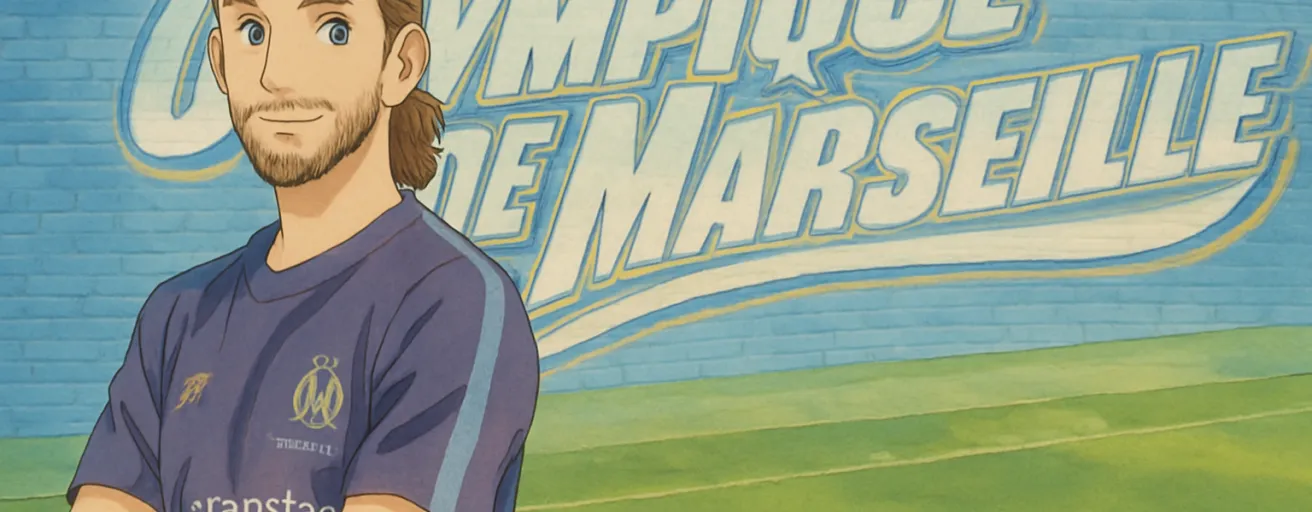
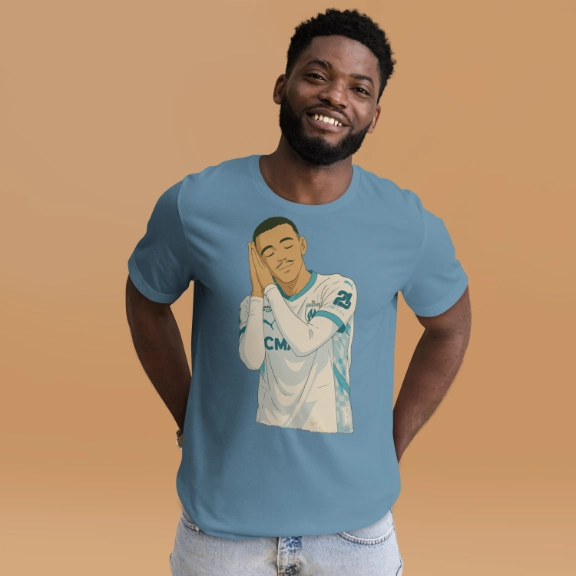
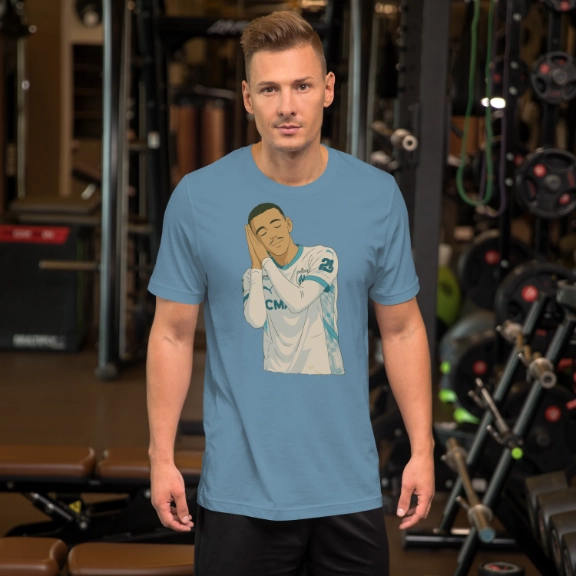
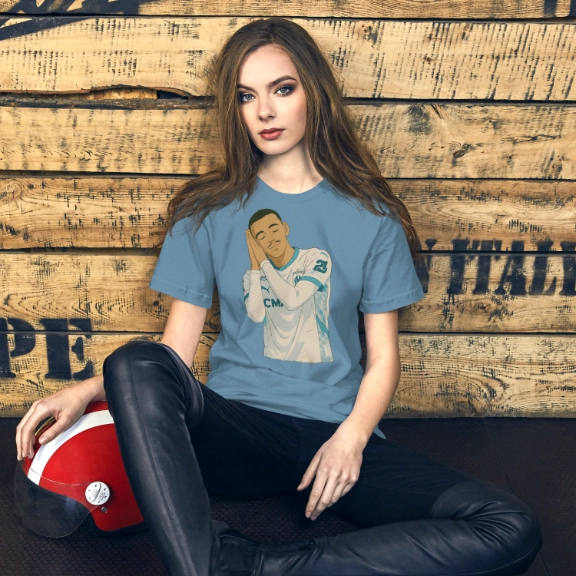
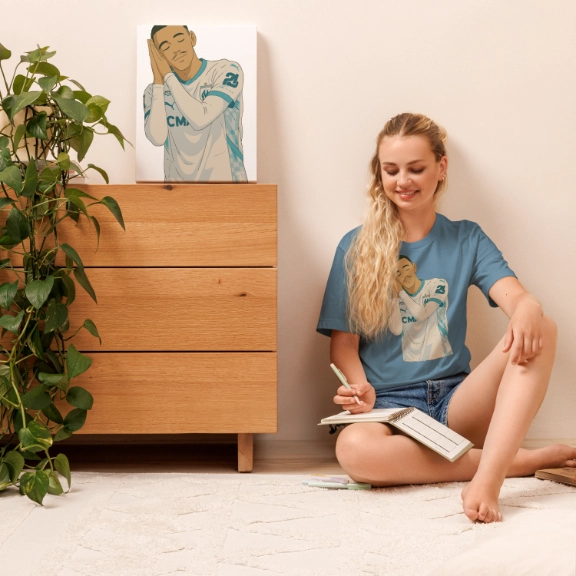

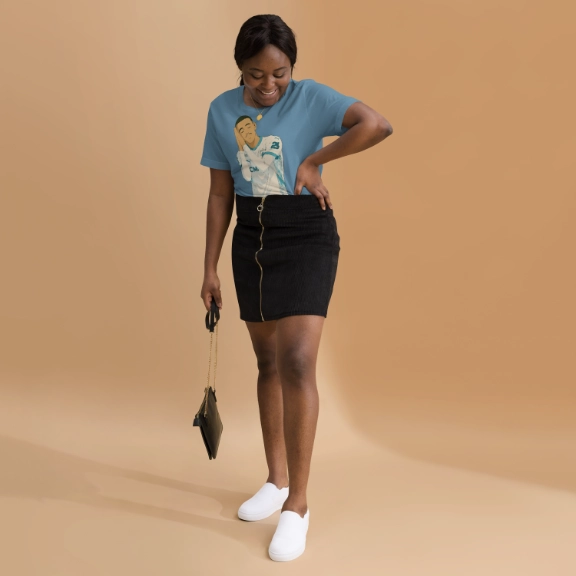
Join the debate!
Share your take, ask away, banter with fellow fans—your voice keeps our digital Velodrome roaring.